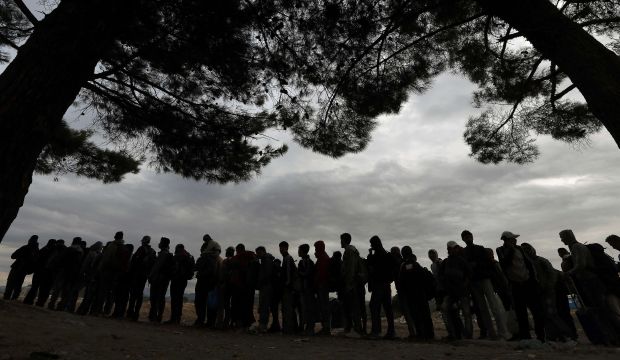News of Syrian refugees struggling to enter Austria and Germany from Hungary has dominated headlines around the world for the past week. None of the refugees wants to stay in Hungary or Serbia, or any of the countries they pass through on the way to Germany, according to the Hungarian prime minister.
Hungary tried to stop the flow of refugees attempting to cross into Europe and witnessed chaotic scenes as the police struggled to prevent them from leaving Budapest before eventually capitulating to pressure to open its border with Austria.
The warm welcome they received in Munich was more than what the Syrian refugees expected. The German public sympathized with the suffering of the Syrian refugees who had to cross the Mediterranean and walk long distances through central Europe in order to reach Germany which expects to receive around 800,000 refugees and migrants this year.
The perilous journey from Turkey to Greece is more of a gamble. Refugees pay hefty fees to unscrupulous smugglers who in return pack them on rickety boats that set sail towards Europe.
It is Europe’s worst refugee crisis since the Second World War and European politicians realize that this is just the beginning. There are two million Syrian refugees in Turkey and one million in Lebanon. Moreover, not all of those trying to cross into Europe are Syrian; some are Afghans and African nationals whose countries are torn by conflicts.
Disputes among the EU countries over the refugee crisis give a strong signal that Europe’s generosity has limits unless the international community tackles the root causes of the crisis.
It is unfortunate that millions of Syrians have become refugees as the war drags on and extremist groups continue to spread across the country.
Syrians who made it to Europe after risking their lives at sea are unlikely to return home. At the same time, it is unknown whether the thousands of foreign militants who came to Syria to fight with extremist groups will ever return home. It seems a bizarre irony that Syrians are forced to leave the country of their ancestors only to be replaced by Afghan and Chechen extremists and Hezbollah fighters.
Refugees and migrants stay in their host countries as long as they have jobs and feel safe. This is why those refugees chose to go to Germany, which has the EU’s biggest economy and lacks manpower.
The photo of the Syrian toddler, Aylan Kurdi, lying dead on a Turkish beach has galvanized the world into action. But the world’s solidarity with the Syrian refugee crisis may dwindle as it did with other crises.
Therefore, addressing the migrant crisis requires coordinated efforts on the part of the international community, such as by setting up an international fund to cover medical care and basic services, or by setting quotas for states to take asylum seekers.
We should not forget that the Syrian crisis has dragged on for a long time and that the ultimate solution must be political and accepted by all parties—one that brings political change, safeguards the Syrian state and protects civilians.
